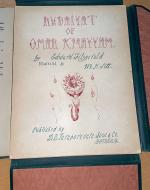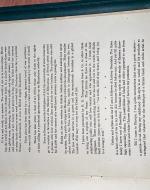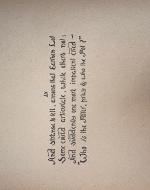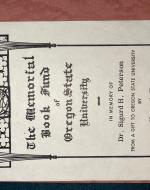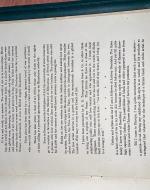This exhibit features a rare and distinctive edition of the Rubáiyát of Omar Khayyám, a collection of quatrains by the Persian poet, mathematician, and philosopher Omar Khayyám, whose literary reputation flourished through Edward FitzGerald’s influential 1859 English translation. FitzGerald’s rendering introduced themes of life’s transience, the inevitability of death, and the importance of savoring the present, echoing carpe diem philosophies and subtle critiques of religious dogma. These enduring ideas have captivated readers for generations, securing the Rubáiyát's place as a classic in world literature.
One particular 1946 edition by D.B. Taraporevala Sons & Co., illustrated by Indian artist Mera Ben Kavas Sett, reflects both artistic boldness and cultural controversy. Sett’s introduction laments the decline of true art in the face of rising vulgarity, recounting his struggles with publishers who deemed his daring, nude-themed illustrations "shocking" for respectable British sensibilities. Housed unbound in an ornate green and gold casing with hand-designed lettering, this edition challenges colonial-era norms of propriety and censorship. Through its visual and poetic dialogue, the book becomes a striking testament to artistic freedom and the enduring relevance of Khayyám’s contemplative themes.

